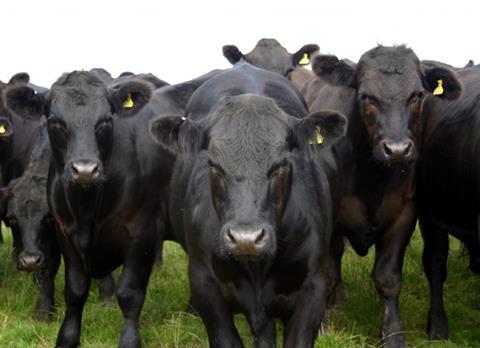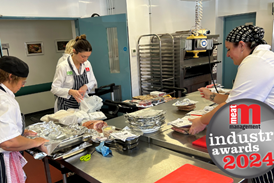Sparks flew at the Scottish Beef Association (SBA) AGM in Stirling last week as beef producers and finishers pointed the finger directly at the lack of competition between processors, and the lack of promotion within the retail sector for the Scotch brand, as the reason for the continued drop in finished beef prices.

Commercial cattle are back close to £200 on the year, while scheme cattle such as Aberdeen Angus are back close to £250. SBA chairman, Neil McCorkindale said: "Bearing in mind last year was not by any means a buoyant year for finishers, those prices are unsustainable. How can the sector continue to produce beef if there is not an immediate rise in finished prices?”The effect of Brexit on the beef market earlier in the year is not disputed by the SBA, but there has been continual punishment of finishers by the over-stocking of processors.“Retail price has been steady, exports are up, and the UK only supplies 80% of its own consumption, so how can farmers be getting such poor prices?” asked NBA chief executive Chris Mallon.“Farmers share of the retail price continues to fall. Producers share of the retail price was historically 55% while now we are getting nearer 46%,” Mallon continued.He added: “I know of people who have decided not to fill newly erected cattle courts as it makes better sense to leave them empty. The situation is terminal and without immediate change the store trade in the autumn will suffer as finishers struggle to make up their losses.“With every 100 cattle consigned being back £20,000 on last year it is unsustainable,” Mr Mallon concluded. “No matter how efficient we are, no matter how low interest rates are, it is impossible to make the job pay.”McCorkindale went on to add: "More government support for the producer might help slow down the number of cows leaving the hills and uplands in the short term, but until the finishers get a fairer share of the profits that some individuals are making, according to reports, we will continue to see farmers walk away from the beef industry leaving a drastic fall in production."Do processors want a supply of Scotch Beef in the future or are they happy just to import more and process that in the mix? Retailers must support the Scotch label and ensure a fair price is paid for it by their processors," concluded McCorkindale.
SAMW reactionSAMW executive manager, Martin Morgan, said: “We fully understand the difficulties that producers are enduring, but pointing the finger at processors is wide of the mark and unhelpful to the current situation. There are two key elements to delivering good margins for all players in the supply chain; a healthy and consistent demand for red meat from the consumer and decent values for 5th quarter material to enable carcase balance to be achieved, providing economic stability."The reality which member companies have faced this year, however, is that while retail prices have remained steady, wholesale prices have not, due the prolonged period of reduced demand from consumers. Current statistics from Quality Meat Scotland, for example, show mince sales down by 4.1% from last year’s level and steaks down by 3.4%.“Businesses have also faced significant reductions over the last 12/18 months in the value of 5th quarter items, such as hides and offal, a factor which has contributed heavily to a severe downward pressure on processing margins with a consequent negative impact on what member companies have been able to pay for stock.“It is not a case of any lack of competition among processors. On the contrary, the red meat sector is a highly competitive industry, driven by supply and demand at every point, with member companies regularly making huge investments to maintain Scotland’s presence in both domestic and international markets. To be accused of a lack of competition and a lack of promotion at a time when businesses are fighting for market share at home and abroad is very disappointing to hear by a processing sector which has never worked harder to sustain and develop Scotland’s red meat industry.”
This story was originally published on a previous version of the Meat Management website and so there may be some missing images and formatting issues.






